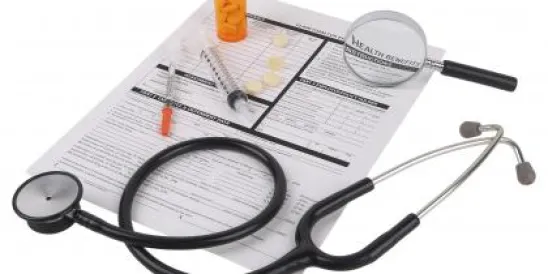On July 30, 2018, two insurers – Moda Health Plan, Inc. (“Moda”) and Land of Lincoln Mutual Health Insurance Company – petitioned the U.S. Court of Appeals for the Federal Circuit to reconsider the Court’s June 14, 2018 ruling in which the Court held that the U.S. Department of Health and Human Services (“HHS”) is not responsible for making past-due “risk corridor payments” to insurance companies as required by Section 1342 of the Patient Protection and Affordable Care Act (“ACA”) (the “June Ruling”).
Background of the Risk Corridor Program
The risk corridor program was a temporary method to promote accurate premium rates by insurers participating in ACA exchanges from 2014 through 2016 (the “Risk Corridor Program”). Like the risk adjustment program that we discussed in July, the Risk Corridor Program was designed to distribute the risk for Qualified Health Plans (“QHPs”) participating in the ACA exchanges.
Under the Risk Corridor Program, HHS assigned a target amount for total allowable costs to each QHP participating in the ACA exchanges. Any QHP whose actual allowable costs fell below its target allowable costs was required to make payments into the Risk Corridor Program. Conversely, QHPs with allowable costs exceeding their target allowable costs received payments from the Risk Corridor Program to offset such costs.[1]
In 2014, Congress passed a measure sponsored by Sen. Marco Rubio (R-Fla.) using appropriations riders that intended to make the Risk Corridor Program budget-neutral. The riders limited the amount of risk corridor payments to the amount of money received by QHPs exceeding their target allowable costs. This limitation to Section 1342 ultimately led to funding shortfalls for risk corridor payments, resulting in fulfillment of only 12.6% of Risk Corridor Payment requests in 2015.[2] Since 2015, this payment gap has only grown larger.[3] Currently, the amount of unpaid risk corridor payments measures approximately $12.3 billion.[4]
The June Ruling
In response to the failure to make the full payments contemplated under Section 1342, Moda Health Plan brought suit in the U.S. Court of Federal Claims in 2016, demanding the payment of past-due risk corridor payments.[5]
Writing for the majority, Chief Judge Sharon Prost explained that the Risk Corridor Program is an incentive program that does not impose an official contractual agreement between HHS and QHPs for the full amount of the risk corridor payments, as evidenced by the appropriations riders.[6] Additionally, Judge Prost explained that the risk corridor payments are not obligatory, since the government did not provide budgetary authority to HHS to administer the risk corridor payments.[7] Finally, Judge Prost ruled that HHS already paid a satisfactory amount under the Risk Corridor Program to Moda, and no additional amounts should be required.[8]
Insurers Request an En Banc Hearing
In its request for appeal, Moda advances three arguments to support its entitlement to the risk corridor payments: [9]
First, Moda argues that an appropriations rider passed by Congress cannot abrogate a statutory obligation to pay funds, unless the rider clearly states such intent. Citing various precedent, Moda argues that appropriations riders could not amend the statutory right to risk corridor payments, unless the appropriations riders “clearly manifest[ed]” Congress’ intent to change the obligations under Section 1342. Since the appropriations riders did not have language clearly manifesting such intent, Moda argues that Section 1342 still gives insurers a statutory right to receive risk corridor payments.
Second, Moda argues that there is no precedent allowing the Court to retroactively deny risk corridor payments that insurers earned based on past performance. Moda notes that the appropriations riders to Section 1342 were passed after insurers undertook material performance to participate in the Risk Corridor Program. Citing U.S. Supreme Court precedent, Moda argues that a statute cannot be given retroactive effect, unless retroactivity is required by explicit language in or the necessary implication of the statute. Because the appropriations riders neither had clear language nor necessarily implied that risk corridor payments should be retroactively withheld, Moda argues that it is entitled to the earned risk corridor payments.
Third, Moda argues that there was an implied contract between the government and Moda to make risk corridor payments, and the government breached the contract when it failed to pay funds earned by Moda. Rather than a mere incentive program, Moda argues that the government offered risk corridor payments as an assurance to induce insurers to participate in the ACA exchanges. This inducement constituted an offer to contract, which Moda and other insurers accepted by performing their obligations under the Risk Adjustment Program. This offer and acceptance by performance constituted an implied contract, which the government breached when it failed to pay risk corridor payments.
Looking Forward
While it is difficult to determine the insurers’ chances of receiving an en banc rehearing, insurers will not receive any risk corridor payments unless the Federal Circuit’s decision is overturned. If the Federal Circuit denies the rehearing request, the insurers may petition the Supreme Court for a hearing.
[1] Moda Health Plan, Inc. v. United States, No. 2017-1994 (Fed. Cir. June 14, 2018). While Land of Lincoln Mutual Health Insurance Company was not a party to the Moda ruling, it had a similar claim pending before the Court regarding risk corridor payments. The Court applied the ruling in Moda to Land of Lincoln’s claims, holding that it was not entitled to risk corridor payments. See Land of Lincoln Mutual Health Insurance Co. v. United States, No. 16-1224 (Fed. Cir. June 14, 2018).
[2] Moda Health Plan, Inc. v. United States, No. 2017-1994 (Fed. Cir. June 14, 2018).
[3] The Health 202: Here’s One Legal and Political Battle You Didn’t Expect: Republicans Versus Health Insurers, The Washington Post (January 10, 2018) https://www.washingtonpost.com/news/powerpost/paloma/the-health-202/2018/01/10/the-health-202-here-s-one-legal-and-political-battle-you-didn-t-expect-republicans-versus-health-insurers/5a54f81830fb0469e884001b/.
[4] Id.
[5] Moda Health Plan, Inc. v. United States, 130 Fed. Cl. 436 (2017).
[6] Moda Health Plan, Inc. v. United States, No. 2017-1994 (Fed. Cir. June 14, 2018).
[7] Id.
[8] Id.
[9] Moda Health Plan, Inc. v. United States, No. 2017-1994 (Fed. Cir. June 14, 2018), Petition for Rehearing En Banc filed July 30, 2018.




 />i
/>i

